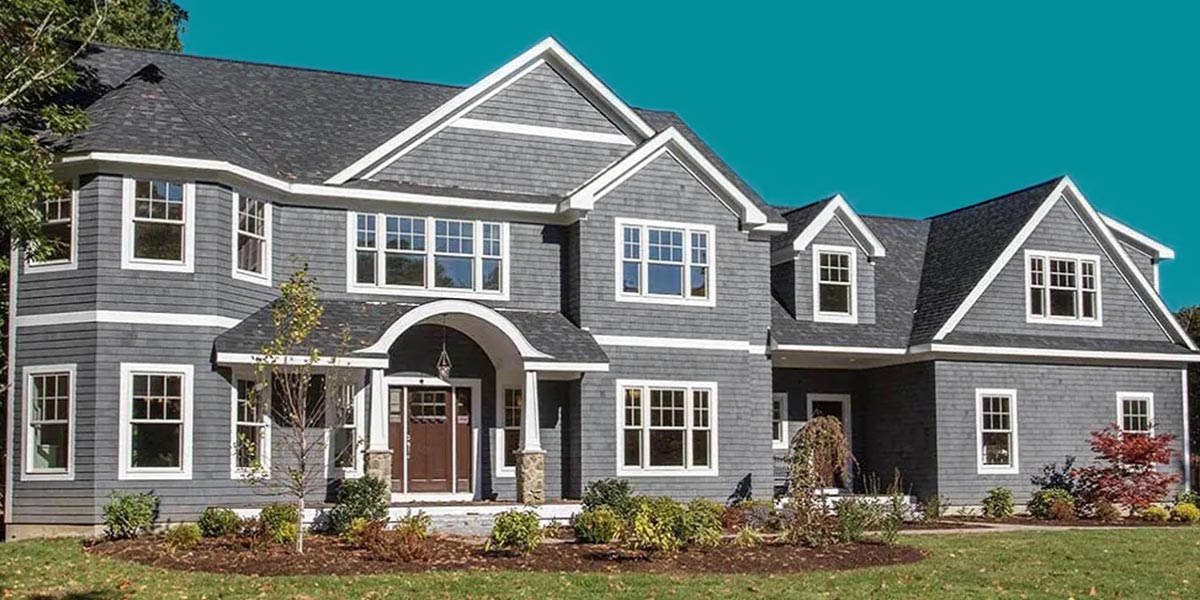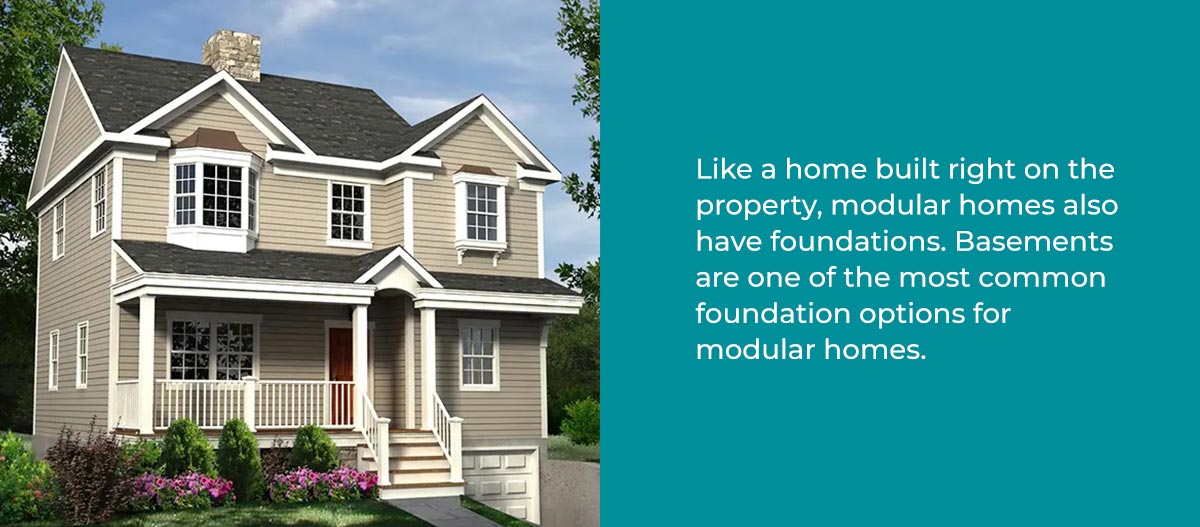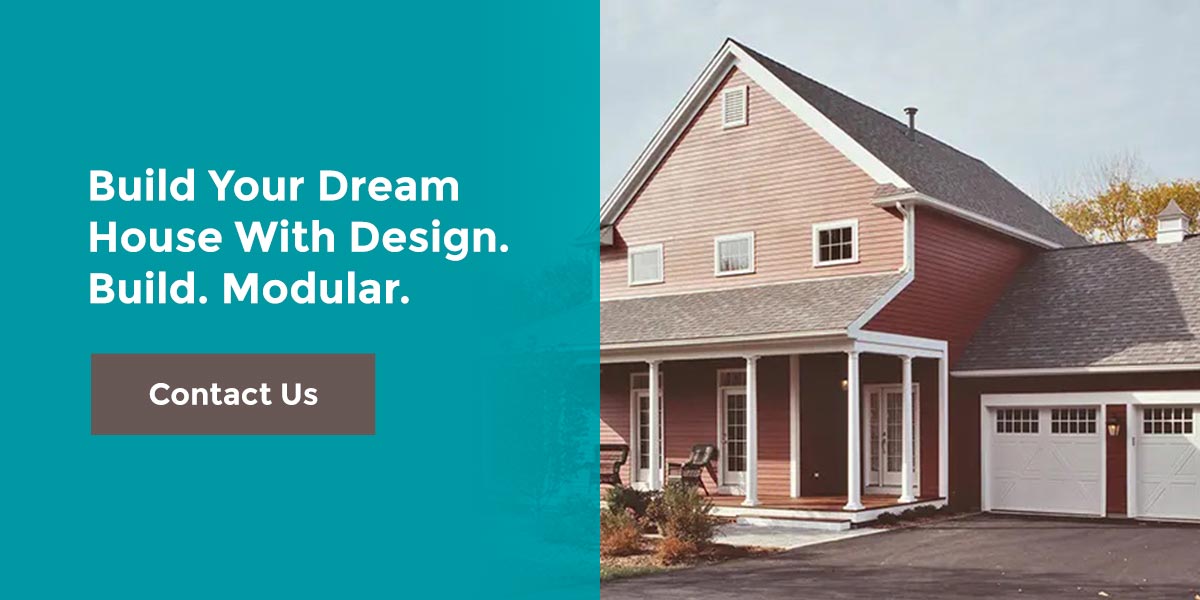Modular homes — or prefab homes — look like your average residence from the outside. However, the construction process is much different than homes built from the ground up. Because of the unique building process, many homeowners wonder whether they can include a basement on their modular property. The short answer is yes — your prefab home can have a basement.
Take a look at the following factors and benefits when modular homes do have basements.
Can Prefab Homes Have Basements?
A prefab home can rest on top of a newly built basement to create a smooth transition from the house to the basement. Installing the prefab house on top of a basement is pretty simple. The construction teams install the basement and the foundation on-site at the address where the new residence will be. Once the ground can support the home and the basement is complete, the construction team will transport the modular home on top to connect the basement to the rest of the house.
The size of a basement underneath a modular home can depend on several factors, including:
- The size of the property
- Frost line regulations
- The shape of the land
With the help of a trusted team of contractors, you can generally choose as large of a basement as you desire as long as it fits within the property lines and does not build above the frost line for functionality purposes.
Do Modular Homes Have a Foundation?
Like a home built right on the property, modular homes also have foundations. Basements are one of the most common foundation options for modular homes. They keep your home functional and safe and can include windows and doors. If you are still on the fence about having a basement with your modular home, you can also consider other foundation options, including:
- Crawlspace: With an additional 48 inches of support above the ground, you can protect your home from harsh weather conditions and cold climates.
- Slab: A slab of concrete poured with gravel or sand under the house prevents flooding, drafts from high winds and freezing temperatures from entering the home.
- Pier: The supportive structures of cement cylinders anchored to the ground can help fight off chilled temperatures, frost and flooding so your house keeps its reliable stability.
- Slab and concrete block skirting: You can provide support to your home by putting blocking stations under the steel beams of the house. This creates additional storage as well.
Why Build a Basement?
Basements serve various purposes — each unique to the family occupying the home. While some family members might use these spaces as a game room or home movie theater, some use basements as additional storage spaces for boxes and old items.
These uses are only a few of the numerous benefits of building a basement on your property. The extra space has many more possibilities.
The most common uses and benefits of building a basement underneath your house include the following:
- Extra storage space: Moving boxes, files, the kids’ old school projects and several other items can quickly take up space in your home over time. To clear up some of the clutter in the house, you can use the basement as a storage area for all of these items you might want later. You will not have to throw out any precious memories or valuable information with the help of this extra organization space.
- Storm shelter: No matter the purpose you intend for your basement, you can benefit from the added security from natural disasters that these rooms offer. Hurricanes, tornadoes, high winds and intense rain storms can often shake the walls of a home. While these occurrences might not cause any damage to the house, you can rest assured that you have a space to use as shelter in case of an emergency.
- Recreational space: Create the extra rec room you always wanted. You can utilize your basement by creating a home gym, library, movie theater, game room or another creative space to fuel your hobbies. Having a fun purpose for this underground space gives you an excuse to invite friends and family over to enjoy your favorite activities whenever you please.
- Additional living space: As your kids grow up, they might start to hint at expanding their living space, so they have room for their hobbies, possessions and friends when they come over. A basement is an excellent place for kids to move their bedrooms to during their teen years that won’t cost you the expenses of expanding their existing bedroom. You can also use this space as a guest bedroom for friends and family visits.
- Increasing your home’s value: This additional space underneath your home can increase the value of your property once you decide to sell. Since basements add to the square footage of the house and provide a stable foundation, you can expect to see a boost in the resale value.
Why Don’t All Homes Have a Basement?
While basements can offer numerous benefits to most homes, the geographical location of properties can support or diminish these factors.
For example, the frost line differs in states across the country. In the southern states, the frost line is closer to the ground’s surface because of the warmer climate. Since basements need construction several feet under ground level, many homeowners in these states choose not to install a basement on their property because they don’t view them as necessary for supplying a reliable foundation with additional storage.
California homes typically do not include basements due to the high sea levels that can cause flooding and earthquakes that can trap the foundation underneath the rubble.
Before making a final decision about installing a basement on your property, discuss the possibilities of benefits with a trusted team of contractors first to ensure you can see an increase in home value and personal use.
Build Your Dream House With Design. Build. Modular.
Turn your dream home into a reality with customizable modular homes from Design. Build. Modular. Our unique and personalized process allows you to work with a base model of a home and create your vision of a perfect interior and exterior from scratch. During the design consultation, you have the freedom to implement your style and architectural preferences.
To avoid the hassle of working with different design and build teams, you can work with the same consistent group of trusted contractors throughout the construction of your home with Design. Build. Modular. If a basement or other additional features are on your radar, we can help make these ideas part of your everyday life.
Contact us today to get started on your dream home in Connecticut, Massachusetts or Rhode Island!


